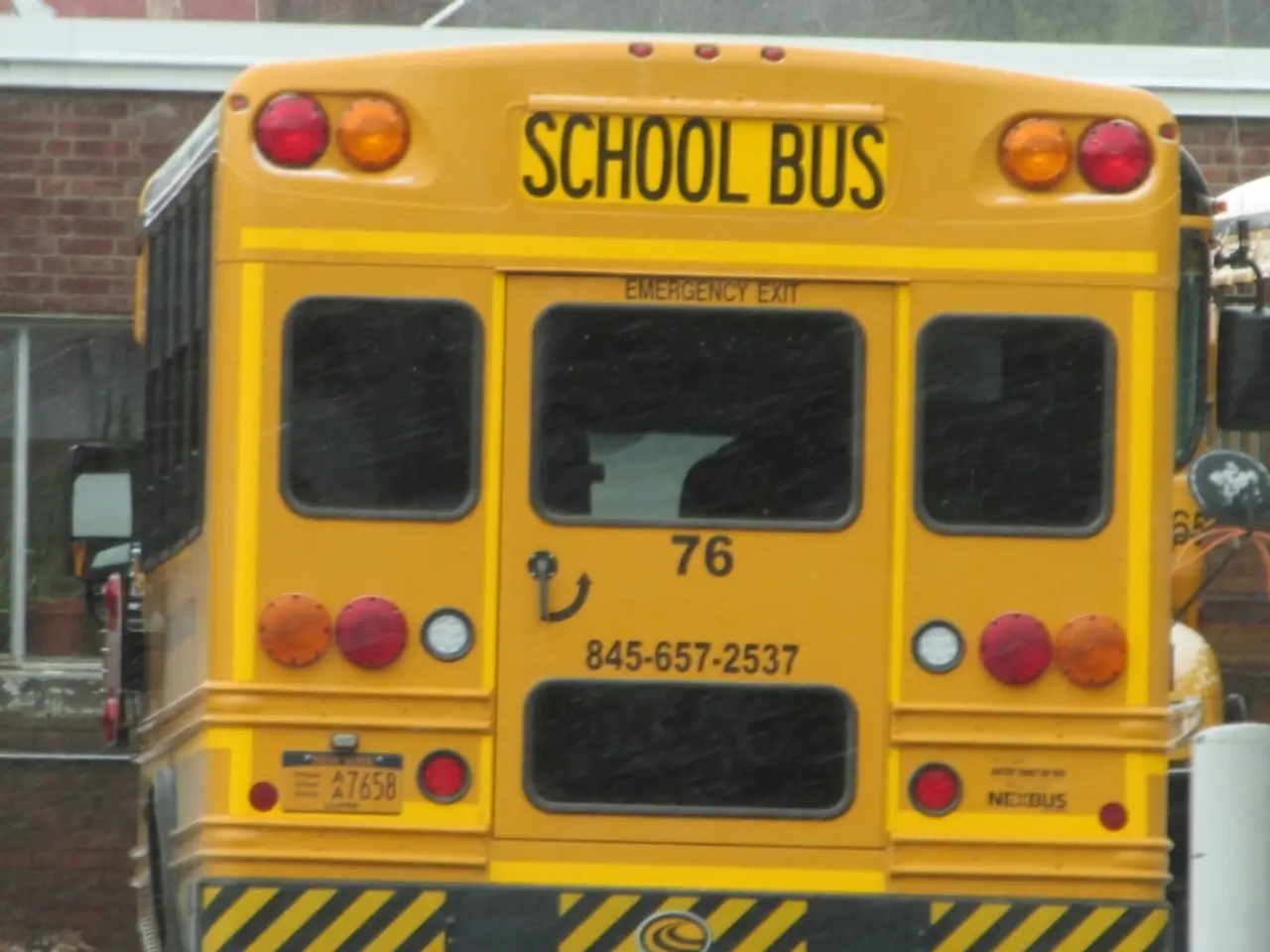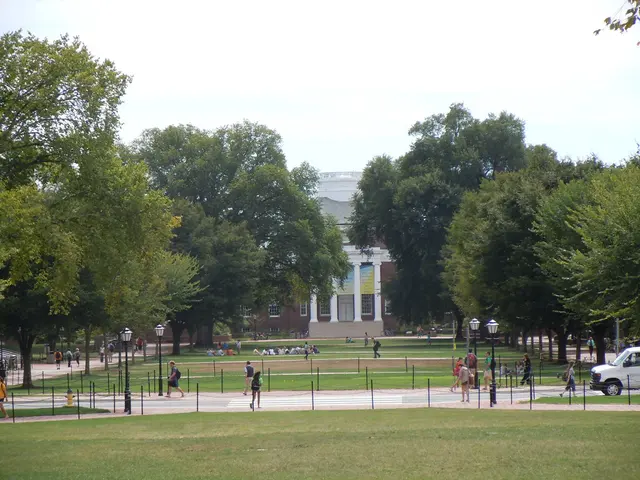High School Completion Rates Reach 14,300 Pupils
In the heart of Germany, Berlin has once again demonstrated its commitment to academic excellence. The Hans-Carossa-Gymnasium recently witnessed a remarkable achievement as its youngest student ever, just 14 years old, graduated with an impressive grade of 1.1 in the Abitur exams.
This outstanding result is a testament to the dedication and hard work of both students and teachers, according to Berlin's Senator for Education, Katharina Günther-Wünsch (CDU). The evaluation of Berlin Abitur results, conducted by the education administration, revealed that this year's pass rate was slightly higher than last year's 93.8%, with 14,373 students out of 15,211 passing their Abitur, resulting in a pass rate of 94.5%.
The top Abitur student in Berlin, from the Jane-Addams-Schule, scored an impressive 899 out of 900 possible total points. Interestingly, the top student hails from a vocational school, challenging the common perception that academic success is limited to traditional schools. The top male Abitur student, from the Canisius-Kolleg, scored 891 points.
Berlin's consistent high Abitur pass rates can be attributed to several factors. The city adheres to the German education system's rigorous qualification structure, requiring students to complete the Abitur or equivalent qualifications to enter university programs. The presence of alternative pathways, such as through professional qualifications and Fachabitur, ensures multiple routes to higher education, contributing to overall educational achievement.
The city also hosts prestigious institutions like the Humboldt University of Berlin, which feeds into high academic standards at the secondary and tertiary levels. Schools linked to such universities often uphold strong academic cultures that prepare students adequately for the Abitur exams.
German education, including Berlin's, involves well-defined stages with compulsory schooling until age 18, covering elementary through secondary branches. The Gymnasium, which prepares students for the Abitur, focuses heavily on core subjects like German, mathematics, and foreign languages, which are key to passing the exams.
While direct comparisons of specific top secondary schools in Berlin are limited by current data, the overall framework supports strong student performance on the Abitur exams. The city's commitment to education, coupled with its robust education system, continues to foster academic excellence and provide students with the best opportunities for further education and life paths.
The achievement of the Hans-Carossa-Gymnasium's youngest graduate ever further emphasizes the importance of education-and-self-development, as demonstrated by Berlin's persistent commitment to academic excellence. This dedication, in turn, offers a multitude of opportunities for students to excel and pursue education-and-self-development, whether through traditional academic paths or alternative routes like professional qualifications or Fachabitur.




